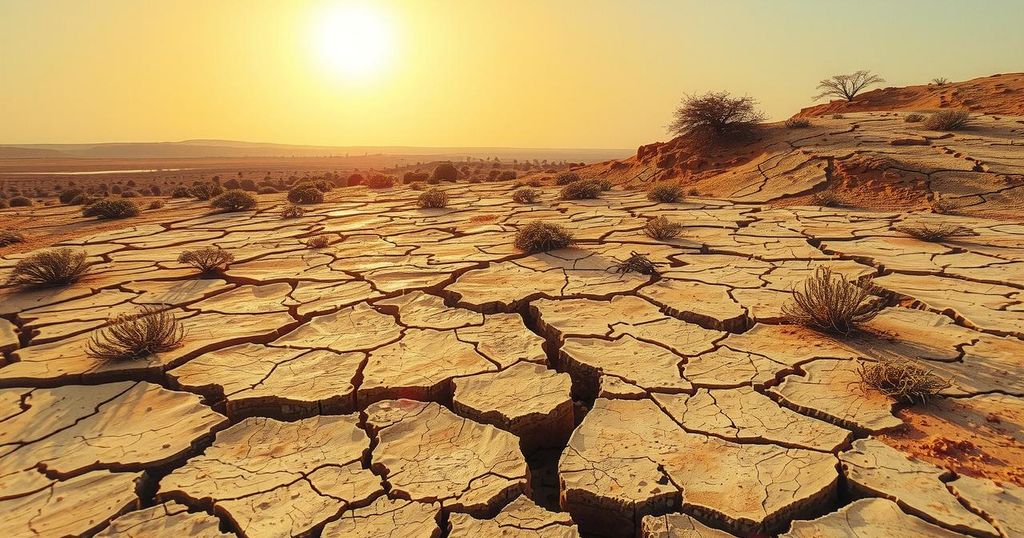Impact of Climate Crisis on Water Scarcity and Food Security in Africa

Oxfam’s report reveals a significant water crisis in Eastern and Southern Africa, contributing to an 80% surge in hunger over the past five years. It highlights that 116 million people lack safe drinking water, with urgent needs exacerbated by climate-induced extreme weather patterns. The report calls for increased global support and investment in water security and resource management to alleviate the crises affecting millions in the region.
The climate crisis has severely impacted water availability across Eastern and Southern Africa, with nearly 116 million individuals now lacking access to safe drinking water. According to an Oxfam report released ahead of World Water Day, the region has faced an alarming increase of nearly 80 percent in hunger over the past five years. This situation has been exacerbated by extreme weather patterns, droughts, and the diminishing of Africa’s tropical glaciers, which profoundly affect small-scale farmers, fisherpersons, and pastoralists.
An analysis of eight African nations, including Ethiopia, Kenya, and Somalia, shows that over 55 million individuals were experiencing extreme hunger in 2024, a significant rise from nearly 31 million in 2019. The report highlights the detrimental effects of the ongoing La Niña weather pattern, which contributes to floods in Southern Africa and drought conditions in East Africa, intensifying food scarcity and threatening livelihood security.
The global trend of climate change has also resulted in flash floods becoming 20 times more frequent since 2000, while droughts have increased in duration by 29%. The compounded effects of poverty, systemic inequality, and inadequate investment in water resource management have worsened the situation. Currently, African governments are unable to meet the necessary investment target of US$50 billion annually needed to ensure water security by 2030, with only half of that amount currently being allocated.
Oxfam emphasizes the personal impacts of the climate crisis, stressing the urgent need for wealthier nations to assist those most affected. Fati N’Zi-Hassane, Oxfam in Africa Director, notes the justice aspect of climate financing, stating that sub-Saharan Africa receives just 3-4 percent of global climate finance despite significant climate-related challenges. Comparatively, women and girls bear the brunt of these challenges, often spending up to 10 kilometers collecting water, which detracts from opportunities for education and income generation.
The report also highlights regional statistics illustrating the dire food security situation, with Ethiopia recording a 175 percent increase in food insecurity over five years, and Somalia facing a crisis prompting an additional one million people into food insecurity. Urgent action is needed to address these disparities and secure sustainable resources for vulnerable communities across Africa, particularly in the context of changing climate conditions.
The Oxfam report underscores the profound effects of the climate crisis on water availability and food security in Eastern and Southern Africa, with millions suffering from acute hunger due to worsening conditions. The systemic issues of poverty, inequality, and underinvestment in water resources require urgent attention from both African governments and the international community. Addressing these challenges is vital to ensure equitable access to resources and to mitigate the impact of climate change on vulnerable populations.
Original Source: reliefweb.int






